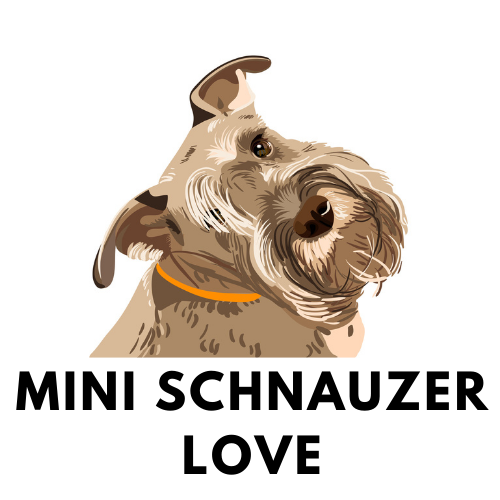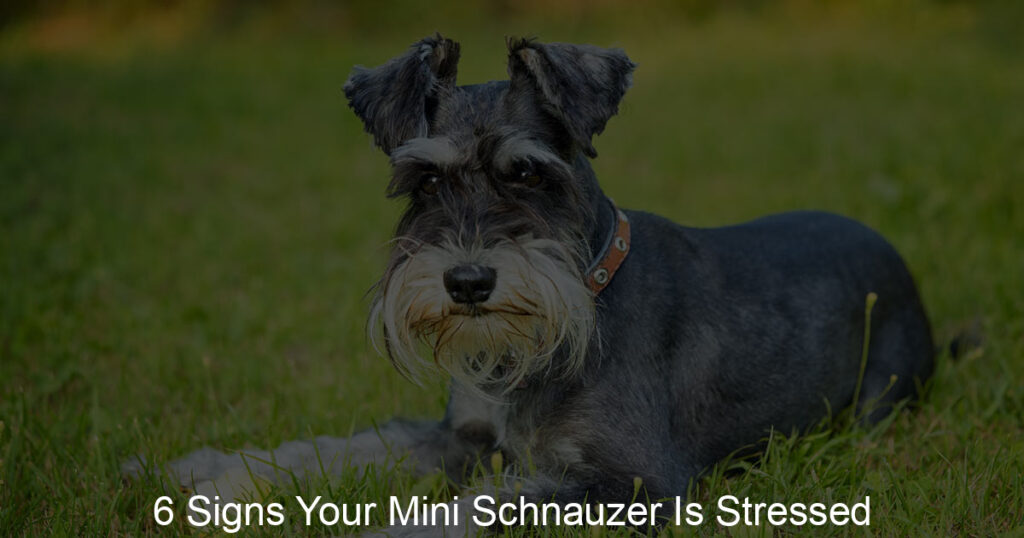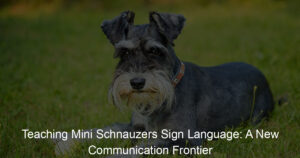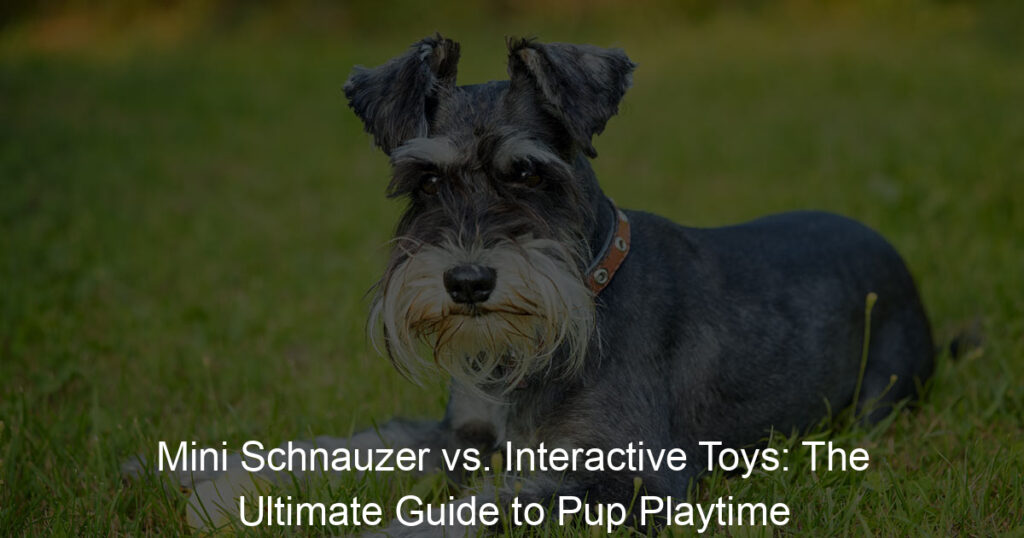Is your Mini Schnauzer acting a bit off lately? Do you feel like their behaviors have changed and they’re not quite as content or comfortable in their environment as usual? Stress can take a toll on our furry friends just like it does on us, humans. It's important to recognize the signs of stress in your Mini Schnauzer so that you can provide them with the support they need.
Read this blog post for 6 Signs Your Mini Schnauzer Is Stressed so that you can be mindful of any changes in behavior, identify potential sources of stress, and help ensure your pup lives a long and happy life!
1. Excessive barking and whining
2. Loss of appetite
3. Pacing or restlessness
4. Shedding more fur than usual
5. Hiding or avoiding people and other pets in the home
6. Destructive behavior such as digging, chewing, or scratching furniture
Do mini schnauzers have anxiety?
Mini schnauzers are known for their spirited personalities, but that doesn't always come without difficulties. Many owners have observed that this breed can suffer from anxiety.
This anxiousness may manifest itself in different ways, such as barking and pacing when they're alone or don't feel safe in their environment. They may also start to exhibit aggression or clinginess, which can lead to destructive behavior if not addressed appropriately by a patient and loving owner.
Along with the proper training and stimulation, providing your mini schnauzer an area of safety and security will help them adjust positively to new environments and become calmer companions overall.
How do you calm an anxious mini-schnauzer?
Mini schnauzers can be high-strung and need special attention to help them stay calm. One way to ease their anxiety is by gentle physical contact, like a body massage or brushing their fur. Talk to your mini schnauzer in a soothing tone, providing reassurance that everything will be ok. Regular exercise is also essential for a healthy balance of energy; this helps relax anxious behavior.
Additionally, provide safe spaces for your pup to hide in when feeling overwhelmed, such as under a bed or table, where they can come out of their shell on their terms. Keeping them well-socialized with other animals and humans is also helpful in keeping an anxious mini schnauzer calm; this helps them better understand different situations they may find themselves in.
Are schnauzers prone to anxiety?
Schnauzers, though known for their cheerful and independent nature, can still suffer from anxiety. Studies have suggested that genetic factors can predispose them to the disorder and the smallest Schnauzer variety is the most vulnerable to developing it.
But just like with any other cause of anxiety, environmental factors still play a role as well. Typically, schnauzers with anxiety are prone to certain repetitive behaviors such as performing certain motions on an endless loop or hiding in dark corners and shying away from people. If you believe that your schnauzer has developed an anxiety disorder, there are many treatments you can consider to help him cope and live a content life.
What makes a schnauzer happy?
Schnauzers can be incredibly joyful and active dogs, but what makes them happy is spending time with their pet parents. These little goofballs thrive on companionship, so taking them for daily walks, playing in the park, or simply enjoying a cuddle session on the couch all make for much-appreciated bonding.
Schnauzers are also intelligent creatures who need plenty of mental stimulation to stay content – engaging activities such as going through teaching sessions or learning tricks will keep your pup purring in happiness. Lastly, all dogs need love, security, and structure; provide these things and you'll be sure to gain increasing loyalty from a contented schnauzer.
What can trigger stress in dogs?
Dogs experience stress just like humans, though it's often triggered by different things. Changes in routine and environment can lead to bouts of anxiousness, as can a high-stress atmosphere or loud noises.
Separation from people or other household pets, exhaustion and lack of exercise, uncomfortable temperatures and extreme weather conditions, loud unfamiliar visitors, and being left alone for extended periods are all situations that present a potential danger to a dog in one form or another and can generate anxiety.
Depending on the sensitivity of the canine's disposition, even something seemingly minor could be enough to bring on considerable levels of stress. Pet owners need to remain aware that something as simple as rearranging furniture or someone arriving in an unfamiliar outfit could trigger fear in their pooch.
In Conclusion: 6 Signs Your Mini Schnauzer Is Stressed
In conclusion, Mini Schnauzers are intense little dogs with big feelings. They typically handle stress better than other breeds, but it's still important to stay aware of their emotions and look out for signs of distress.
Look for behavior changes like restlessness, excessive barking, hiding, toilet-training issues, and decreased appetite. Always talk to your vet if you're concerned about your pup’s mental or physical well-being. Given the right care and attention, though, this loyal breed can bring years of comfort and joy into your life. The most important thing is that you remain vigilant in monitoring for signs of stress in your Mini Schnauzer and respond quickly if any arise—your pup will thank you for it!














